The American job market continues to struggle, held back by the coronavirus, the slow rollout of vaccines and the loss of overall economic momentum.
The Labor Department reported Thursday that new claims for unemployment benefits fell last week for the third straight week but remained at extraordinarily high levels by historical standards.
Last week brought 816,000 new claims for state benefits, compared with 840,000 the previous week. Adjusted for seasonal variations, last week’s figure was 779,000, an decrease of 33,000.
There were 349,000 new claims for Pandemic Unemployment Assistance, a federally funded program for part-time workers, the self-employed and others ordinarily ineligible for jobless benefits. That total, which was not seasonally adjusted, was down 55,000 from the week before.
The easing of new diagnoses and the partial relaxation of restrictions in some places seems to have taken off a bit of the pressure on employers that was evident a few weeks ago.
“These numbers were slightly encouraging,” said Gregory Daco, chief U.S. economist at Oxford Economics. “While still alarmingly high, it’s better than the spike that occurred at the beginning of January.”
Mr. Daco noted that the wait in passing a new stimulus package in December amid partisan battles in Washington may have delayed some claims that ended up being filed in January after it was signed into law. Now that surge seems to be clearing.
Nevertheless, for workers in the hardest-hit industries, conditions remain difficult.
“It’s been a rough winter, especially for folks in the leisure and hospitality sector and the food sector,” said David Deull, an economist at the research and analysis firm IHS Markit. “They were also the ones to suffer during the initial wave of shutdowns in the spring.”
The latest data strengthens the argument for more stimulus, economists say, a key policy position of the Biden White House. The $900 billion aid package passed in December helps many unemployed workers only through mid-March.
“I do think there is a need for more stimulus,” said Rubeela Farooqi, chief U.S. economist at High Frequency Economics. “It’s a crucial part of this rebound.”
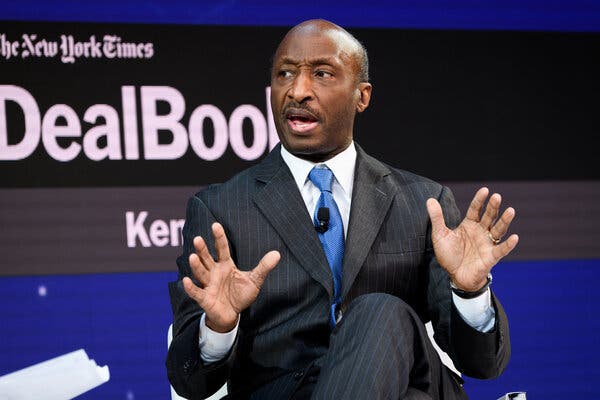
Kenneth C. Frazier, the chief executive of Merck who has led the pharmaceutical company for a decade, will step down from that post later this year, the company said Thursday.
Mr. Frazier will stay on after June as executive chairman during a transition period as Robert M. Davis, Merck’s chief financial officer since 2014, takes over as chief executive.
Shares of Merck, which also reported earnings that fell slightly short of analysts expectations on Thursday, were up a little less than 1 percent in premarket trading. The company’s share price has more than doubled since Mr. Frazier took the reins in January 2011, but this has lagged the S&P 500 index, which tripled over the same period.
Mr. Frazier is an outspoken advocate of racial justice. As Merck’s chief executive, he drew headlines for standing up to President Donald Trump over the violent Charlottesville demonstrations in 2017. As a Harvard-educated lawyer before that, he spent a decade successfully pushing for the exoneration of a wrongfully accused man on death row.
“The most important role of a leader is to safeguard the heritage and values of the company,” he told The New York Times in 2018.
He is one of just four Black chief executives of Fortune 500 companies, including Marvin R. Ellison at Lowe’s, René F. Jones at M&T Bank and Rosalind Brewer, who will take over at Walgreens next month.
The company said in a release announcing the transition that Mr. Frazier’s “belief in the importance of a strong, values-based culture, and his ability to attract and retain the best talent, will stand as an enduring testament to his concern and care for the people whose skill and commitment will be critical to Merck’s continued success.”
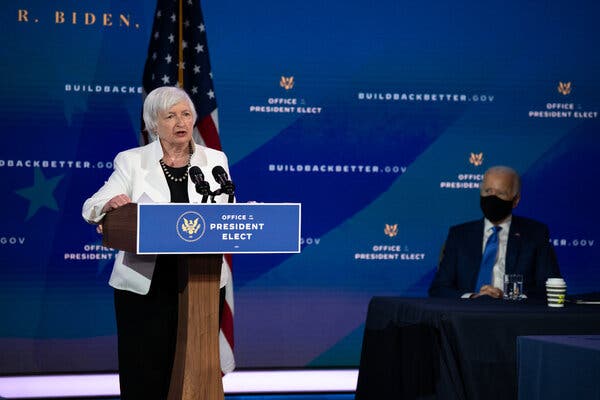
Janet Yellen, the Treasury Secretary, will meet on Thursday with officials from financial market regulators including the Securities and Exchange Commission to discuss the market volatility created by retail traders, the Treasury Department said, after the remarkable rise in prices of “meme stocks” such as GameStop.
The meeting, which will also include the heads of the Federal Reserve, the Federal Reserve Bank of New York and the Commodity Futures Trading Commission, is a sign of heightened scrutiny in Washington toward the frenzy in trading.
Shares in GameStop, a video game retailer, surged last week but have since fallen from their dizzying heights, testing the will of investors who joined in the fervor as a challenge to Wall Street investors. It shares soared 1,600 percent in January alone. Since Friday, the price of GameStop stock has plummeted to about $90 from $325.
The scrutiny in Washington comes as Gary Gensler, President Biden’s nominee to head the S.E.C., the principal overseer of capital markets, awaits Senate confirmation. Mr. Gensler served as head of the C.F.T.C. during the Obama administration and gained a reputation as a tough regulator.
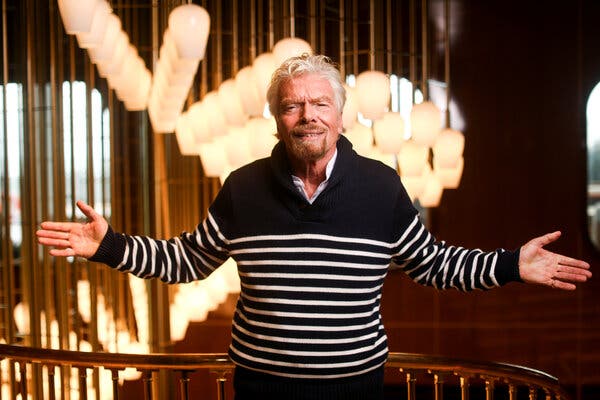
23andMe, one of the most popular consumer-DNA testing providers, said on Thursday that it planned to become a publicly traded company by merging with an investment fund backed by the British entrepreneur Richard Branson.
The company, which helped popularize at-home DNA testing after it was founded in 2006, will join the ranks of businesses that have found new homes in the public markets by merging with so-called special purpose acquisition companies. The company will be valued at $3.5 billion, including debt.
Commonly known as SPACs or blank-check funds, these vehicles have become one of Wall Street’s biggest crazes. They raise money from public-market investors for the sole purpose of buying a privately held company and giving them their stock tickers, bypassing the traditional cumbersome process of an initial public offering.
Last year, 248 blank-check funds raised $80 billion, shattering records, according to SpacInsider. They have grown so popular that their backers now include an array of unconventional figures, like the former Oakland A’s manager Billy Beane and the former House speaker Paul Ryan.
Mr. Branson was an early participant in the trend: In 2019, he took his Virgin Galactic space tourism company public by merging it with a SPAC. The company is now valued at more than $13 billion.
Now he is turning his attention to one of the biggest names in consumer DNA testing. 23andMe pitched itself as a way for people to screen their genetic data for potential health issues, but was temporarily ordered to stop by the Food and Drug Administration. The agency has since allowed it to offer those services.
Under the terms of the deal announced Thursday, 23andMe will combine with VG Acquisition Corporation, which is backed by Mr. Branson and his Virgin Group. Also investing in the transaction are the mutual fund giant Fidelity and 23andMe’s chief executive, Anne Wojcicki.
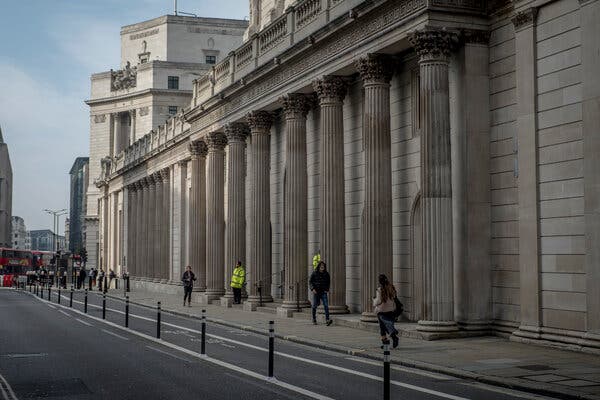
The Bank of England has told British banks that they should take whatever steps are necessary to prepare their systems for negative interest rates, opening up a pathway for the central bank to use this additional policy tool to encourage more lending.
But policymakers cautioned on Thursday that they weren’t trying to send the signal that rates would be cut below zero imminently. The markets responded accordingly: The British pound and short-dated bond yield rose as traders pared back expectations for a rate cut.
The central bank held interest rates at 0.1 percent and continued its asset-buying program at the same pace.
For months, there has been a debate about whether the Bank of England could introduce negative interest rates as another mechanism to bolster the economy. Other central banks in Europe and Japan have had negative interest rates for several years, but there were questions about how effective this move would be in the British economy.
After consulting with banks about whether it would be feasible to cut rates further, it found that most firms would need to make some changes to their systems and processes. On Thursday, it asked the banks to begin making these changes.
“While the Committee was clear that it did not wish to send any signal that it intended to set a negative Bank Rate at some point in the future, on balance, it concluded overall that it would be appropriate to start the preparations to provide the capability to do so if necessary in the future,” the minutes from February’s monetary policy meeting said. Banks should prepare “to be ready to implement a negative Bank Rate at any point after six months.”
The central bank also updated its forecasts for the British economy, which is in the midst of the pandemic and also dealing with the initial impact of Brexit, its divorce from the European Union’s single market and customs union. It said the economy didn’t suffer as badly at the end of 2020 as previously expected, but there would be a downturn in the first quarter of 2021 because of the long lockdown while vaccinations are rolled out.
Gross domestic product was forecast to fall 4.2 percent in the first three months of the year. That’s a downgrade from November’s forecast, when the central bank had predicted more than 2 percent growth.

Royal Dutch Shell, Europe’s largest oil company, joined other energy giants this week in reporting sharply lower earnings on Thursday as the pandemic weighed on oil and gas prices and consumption.
Shell said that its adjusted earnings, a metric followed by analysts, fell 87 percent in the 4th quarter compared with the same period a year earlier, to $393 million. By the same metric, Shell’s profit for all of 2020 fell by 71 percent to $4.8 billion.
When including enormous write-downs on oil and gas fields and other assets during the year, Shell reported a loss of $21.7 billion for 2020.
Despite the disappointing results, Shell said it would increase its dividend payout by 4 percent in the first quarter of 2021. It had already increased its dividend by a similar amount in the third quarter of 2020 after a two-thirds cut earlier in the year, the company’s first since World War II.
Shell says it is able to afford the dividend increases because it pulled in about $21 billion in cash over the year after expenditures.
Shell is one of the largest oil producers in the Gulf of Mexico, but Ben van Beurden, the chief executive, said he did not “see any economic impact” on the company from the Biden administration’s decision to pause the granting of new leases on federal property. Mr. van Beurden, on a call with reporters, said that Shell had some 300 lease positions in the Gulf, giving the company “enough running room for the rest of the decade.”.
He did suggest that the administration’s approach might be shortsighted because it could lead to the United States importing oil and gas produced with greater carbon emissions from elsewhere.
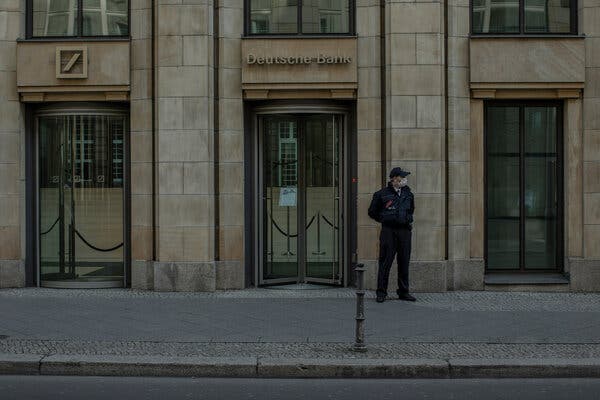
U.S. markets
-
The S&P 500 index rose 0.3 percent at the start of trading after a small gain on Wednesday.
-
On Friday, the first major report on unemployment and hiring for 2021 will be released by the Labor Department. Despite the vaccine rollout, there are still signs that the labor market is struggling. This week, congressional Democrats and the Biden administration moved forward with their $1.9 trillion economic stimulus package.
-
Trading in “meme stocks” like GameStop and AMC Entertainment has calmed in the past few days. GameStop shares fell about 7 percent in early trading. Later on Thursday, Treasury Secretary Janet Yellen will meet with financial market regulators to discuss the recent volatility caused by retail trading.
Europe
-
Most European stock indexes were little changed. The Stoxx Europe 600 was slightly higher with gains in health care stocks offset by losses in consumer and utilities companies.
-
Deutsche Bank posted its first annual profit in six years thanks to an increase in fixed-income trading revenue. But investors showed little interest in the beleaguered German bank’s stock, and its shares fell on Thursday.
-
Royal Dutch Shell reported a nearly 90 percent drop in its profit in the fourth quarter, the latest in a string of big oil and gas companies that have been beaten down by the pandemic, which has sapped demand. It adds pressure to the industry’s transition to greener energy.
-
Oil prices rose. Brent crude, the European benchmark, gained 0.7 percent, reaching $58.84 a barrel, the highest in nearly a year.
Asia
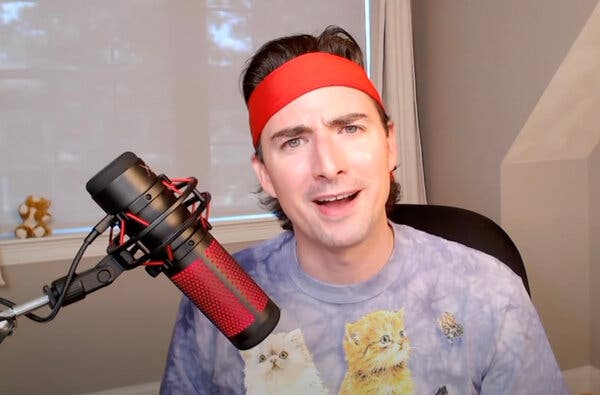
A regulator in Massachusetts wants to know if Keith Gill, an early endorser of GameStop also known as Roaring Kitty, broke any rules pertaining to his former day job when he promoted the video-game retailer on social media platforms.
Mr. Gill is a registered securities broker who worked for the insurer MassMutual as a financial wellness education director, and the company has told the state’s securities regulators that it was unaware that he had spent more than a year posting about GameStop on social media, online message boards and YouTube. The insurer also told regulators that had it known about Mr. Gill’s outside activities, it would have asked him to stop or possibly fired him, The New York Times’s Matt Goldstein reports.
Inspired in part by Mr. Gill’s cheerleading, thousands of small investors pushed stock in GameStop to as high as $483 a share and made Mr. Gill fabulously rich on paper. A picture he posted last week on the Reddit WallStreetBets forum showed his GameStop investment was worth $48 million, though his actual returns could not be independently verified.
Mr. Gill may also be summoned to testify before the House Financial Services Committee later this month, Representative Maxine Waters, the chairwoman of the committee, said on the Cheddar financial news channel on Wednesday.
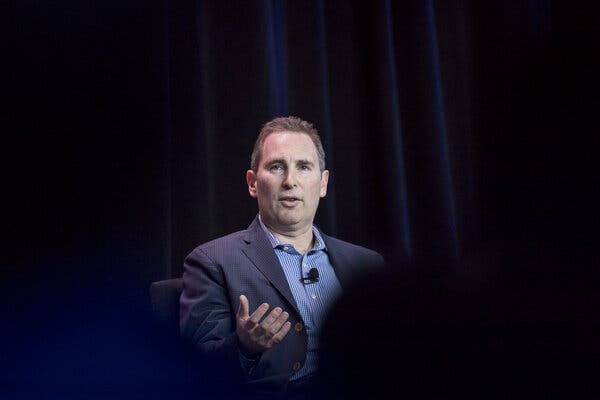
Andy Jassy, the Amazon executive who will take over the company as chief executive when its founder, Jeff Bezos, steps aside later this year, spent more than two decades learning from Mr. Bezos.
In 2002, as a young executive, began following Mr. Bezos everywhere, including board meetings, and sat in on his phone calls, The New York Times’s Karen Weise and Daisuke Wakabayashi report.
The idea, said Ann Hiatt, who was Mr. Bezos’ executive assistant from 2002 to 2005, was for Mr. Jassy to be “a brain double” for Mr. Bezos so that he could challenge his boss’s thinking and anticipate his questions.
As Mr. Jassy followed Mr. Bezos, he also spearheaded Amazon’s move into a new field: cloud computing. That project became Amazon Web Services, now Amazon’s largest source of profit.






